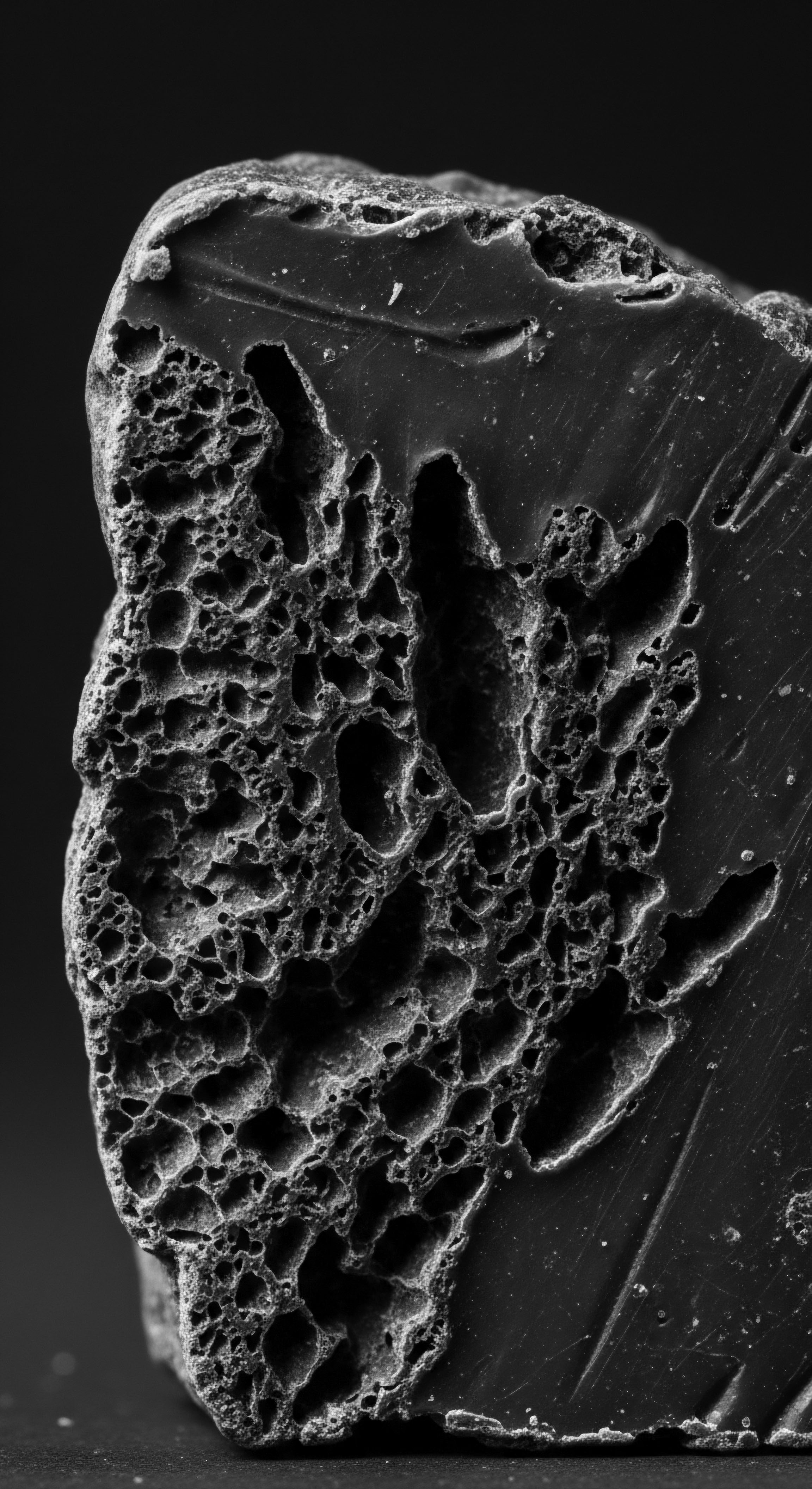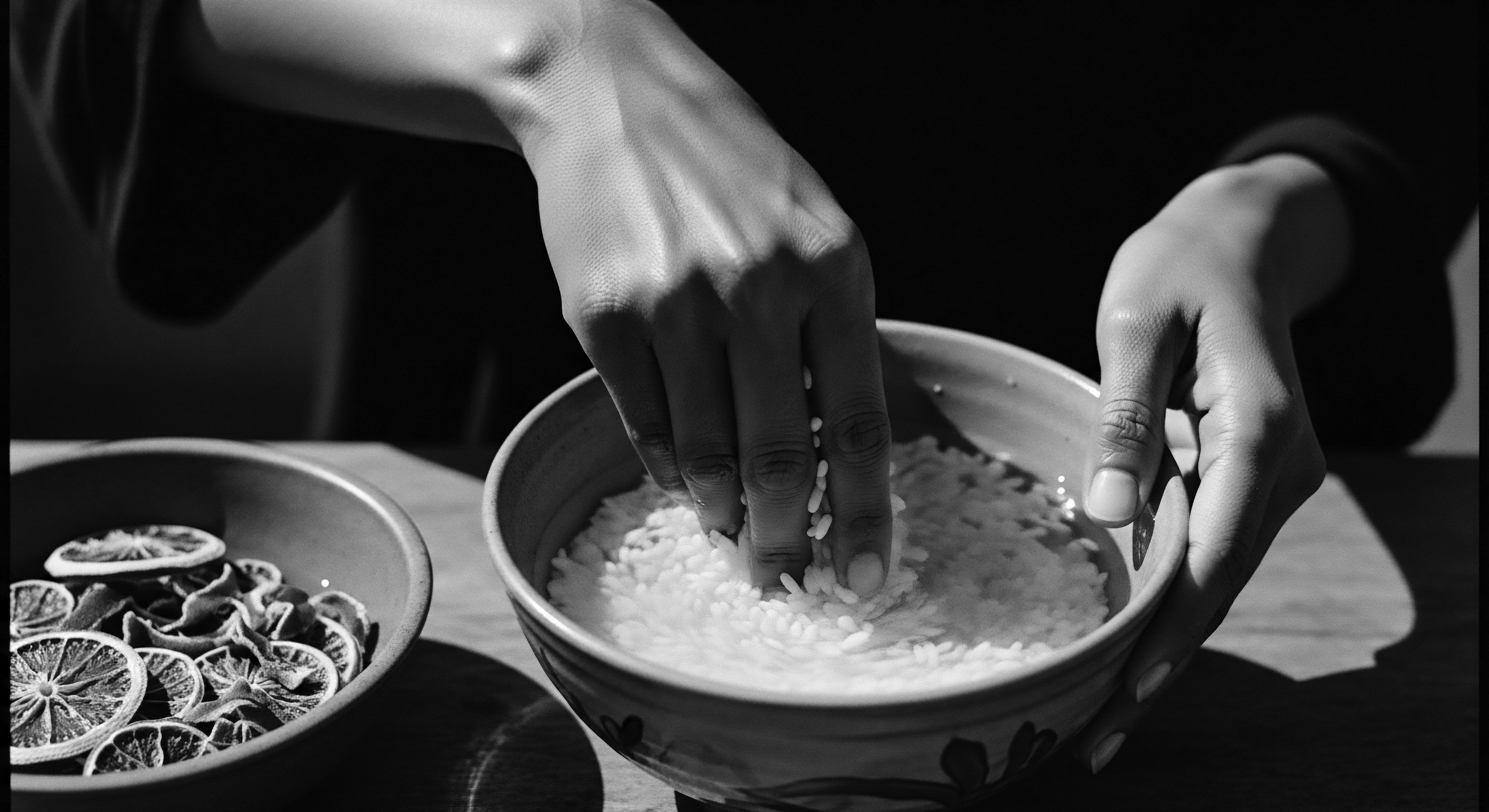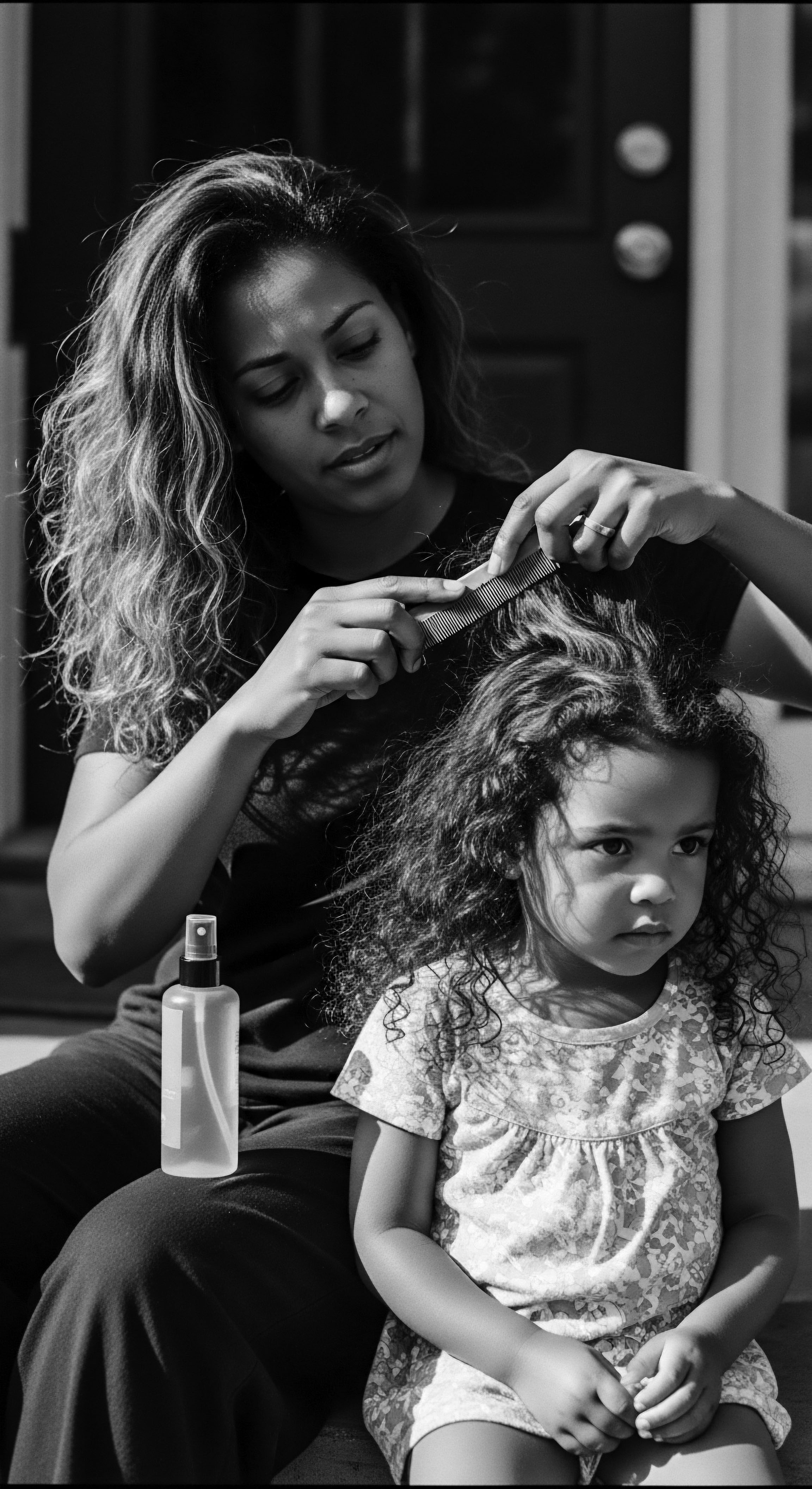
Roots
There exists a profound, enduring conversation between our textured hair and the ancient wisdom passed down through generations. This is not simply a matter of aesthetics or fleeting trends. It is a dialogue rooted deeply in the soil of heritage, connecting us to a lineage stretching back through time, where every curl, coil, and strand holds echoes of resilience and ingenuity. When we consider traditional fermented hair practices, we are not merely examining old recipes.
We are peering into a vast, living archive of knowledge, discerning how ancestral communities, particularly those of Black and mixed-race descent, understood the very essence of hair, its vulnerabilities, and its needs. This understanding was often woven into the practical artistry of daily life, long before modern laboratories and analytical instruments.
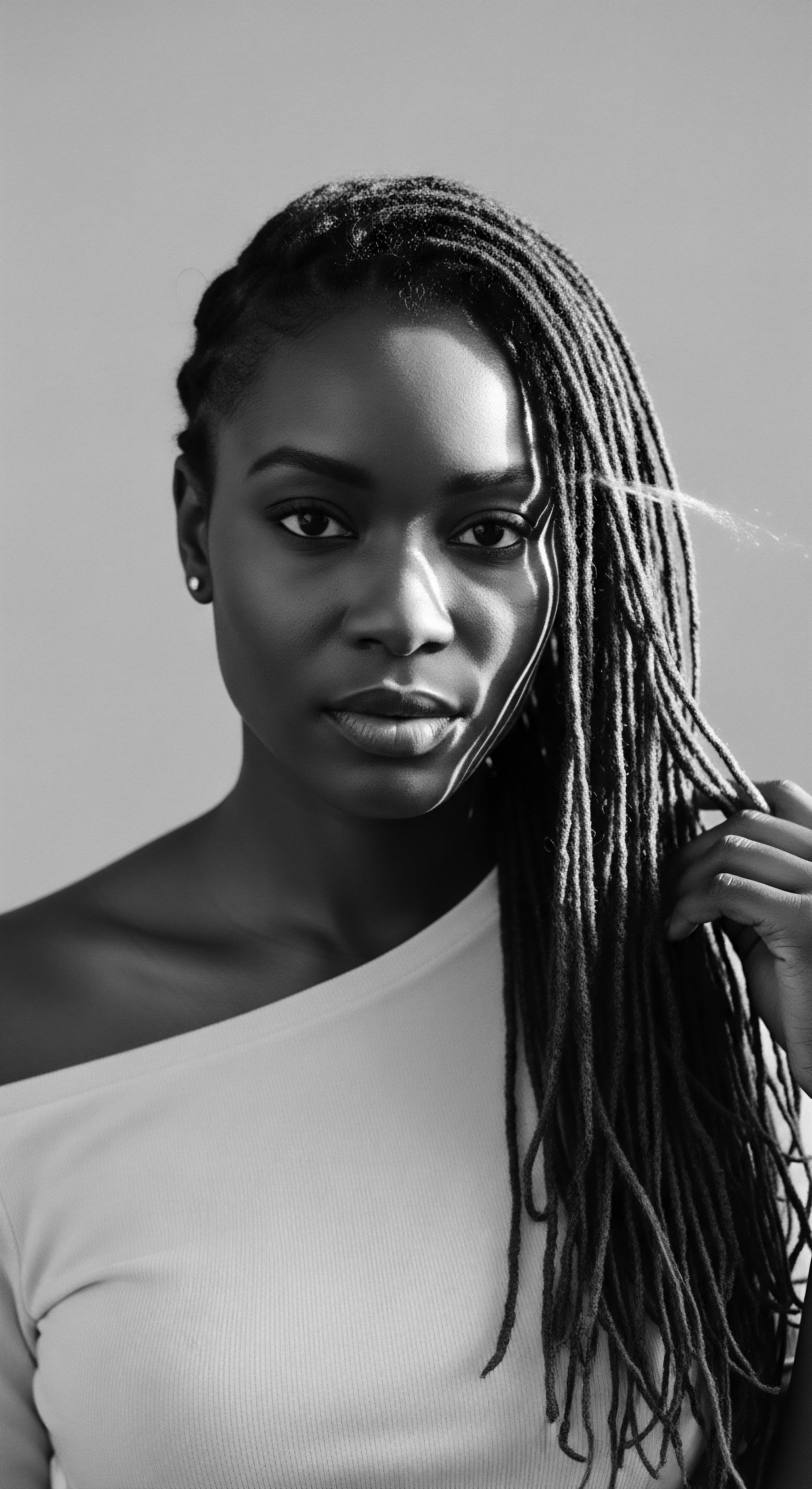
Ancestral Understanding of Textured Hair
For millennia, within African societies, hair has stood as a powerful marker of identity. It communicated lineage, social standing, age, marital status, and spiritual beliefs. Intricate braiding styles and specific adornments served as visual languages, transcending spoken words. The very structure of Afro-textured hair, with its tight curls and coils, evolved as a remarkable adaptation to the sun-drenched climates of Africa.
This coiled architecture provided natural insulation, shielding the scalp from intense ultraviolet radiation while also retaining moisture in arid environments. This inherent protective quality made hair a focal point of careful, deliberate care, leading to practices that honored its unique characteristics.
Traditional fermented hair practices embody a deep ancestral understanding of textured hair’s intrinsic needs and its profound cultural significance.
Before the advent of mass-produced products, communities relied on the gifts of the earth and the transformative power of natural processes. Fermentation, a biological alchemy, would have been a discovery of immense practical value, observed in the preservation of food and likely extended to materials for personal care. The subtle changes in plant extracts or grain waters, the slight tang, the altered texture, would have revealed new properties, new ways to enhance the efficacy of treatments. These were not random experiments but careful, repeated observations passed through familial lines, becoming part of a shared, communal knowledge system.
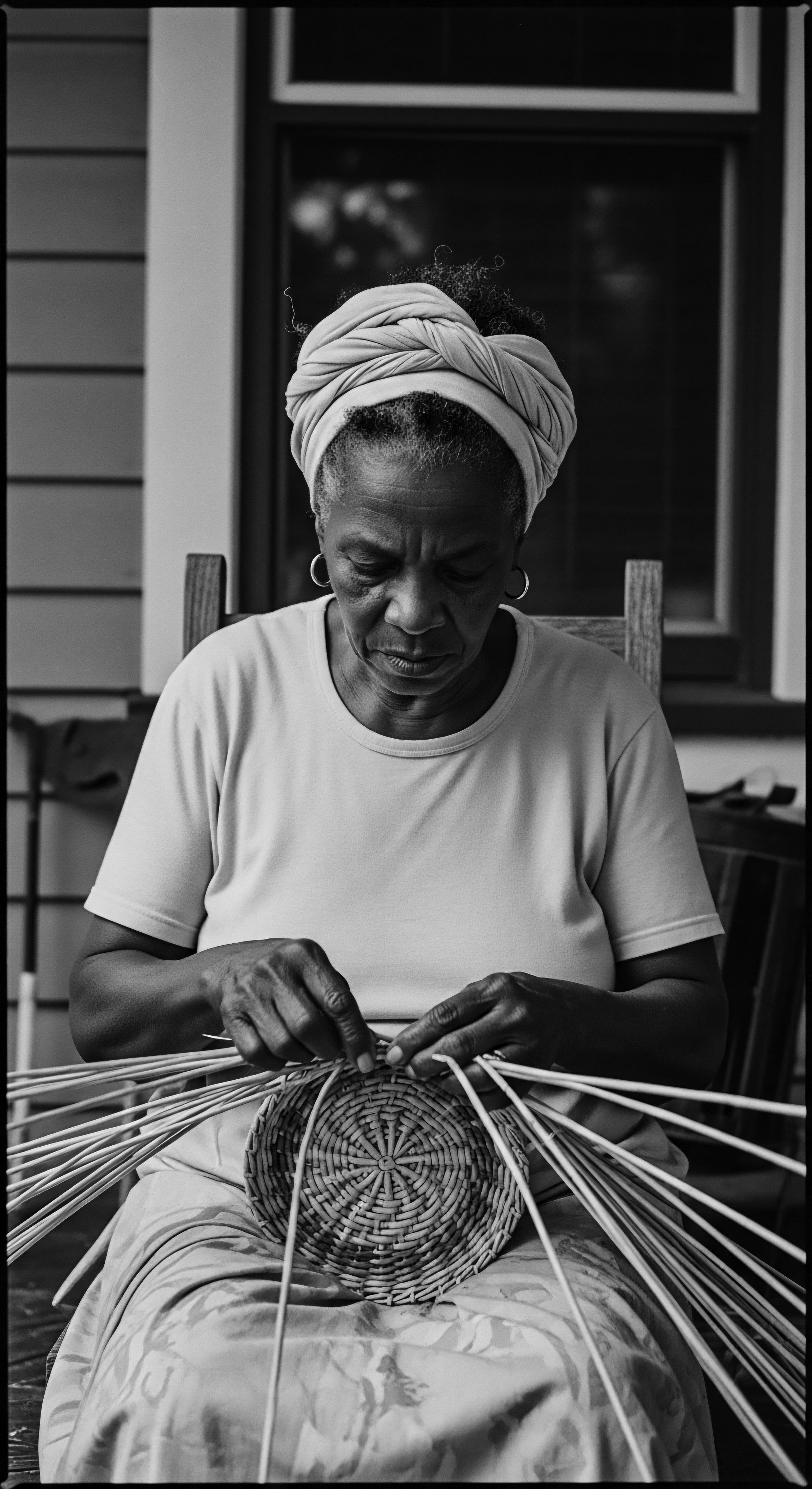
Biological Foundations and Fermentation’s Genesis
The intricate anatomy of a hair strand, particularly a textured one, presents unique challenges and opportunities. The elliptical cross-section and the many twists and turns along the hair shaft create points of vulnerability for breakage while also offering incredible volume and styling versatility. Maintaining moisture and cuticle integrity has always been central to textured hair care. Here, fermentation offers a compelling solution, a whisper from the past that finds validation in contemporary science.
Fermentation involves beneficial microorganisms breaking down complex molecules into simpler, more bioavailable forms. This process unlocks a richer array of nutrients, making them more readily absorbed by the hair and scalp.
- Nutrient Amplification ❉ Fermentation can increase the levels of vitamins, minerals, and amino acids within natural ingredients.
- Molecular Reduction ❉ Large molecules are broken into smaller ones, allowing for deeper penetration into the hair shaft.
- pH Balancing ❉ The creation of organic acids during fermentation can help balance the pH of hair applications, aligning with the natural slightly acidic pH of the hair cuticle.
This ancient practice, applied to various plants, grains, and even certain oils, provided a natural means to create potent elixirs. Consider the women of the Red Yao tribe in China, renowned for their incredible hair length and vibrancy into advanced age. Their centuries-old practice involves washing their hair with fermented rice water. While not directly within the Black or mixed-race diaspora, this historical example illustrates the longevity and efficacy of fermented hair care, suggesting a universal principle applied across diverse cultures.
It speaks to a shared human ingenuity in utilizing natural processes for wellbeing. The consistent, deliberate application of such fermented preparations over generations speaks to their perceived benefits, long before a scientific framework for understanding them existed.
The very choice of ingredients for fermentation would have been deeply tied to local flora and ancestral knowledge of their medicinal and cosmetic properties. Plants revered for their healing attributes, their ability to nourish the skin, or their strengthening qualities for textiles, would naturally become candidates for hair care. The transformation through fermentation then added another layer, enhancing these inherent properties, making them more active, more readily accepted by the hair and scalp. This deep engagement with the botanical world, a form of ethnobotany, forms a foundational layer of understanding how these practices took root.
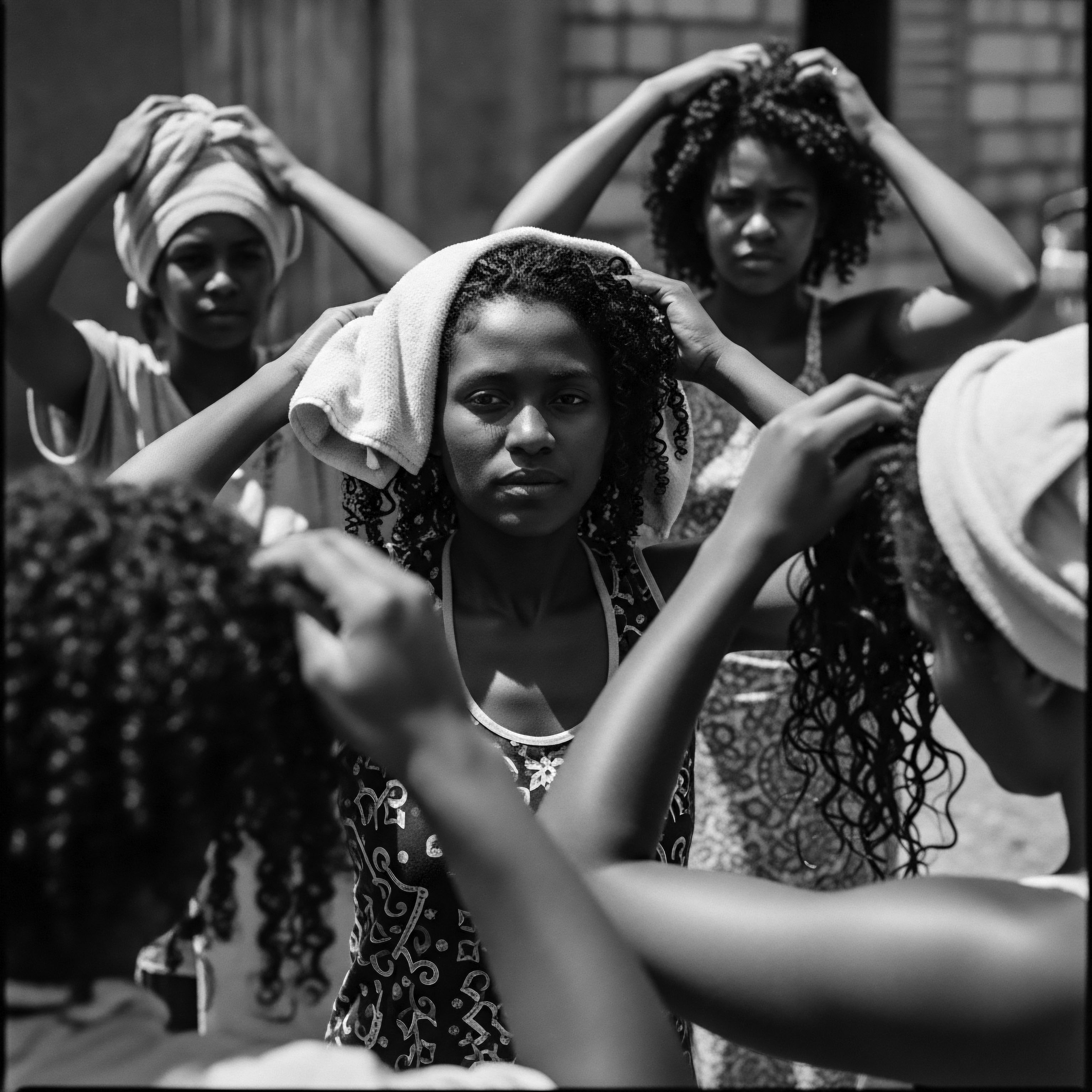
Ritual
The journey of traditional fermented hair practices moves beyond mere biological function, stepping into the realm of ritual. Hair care within Black and mixed-race communities has always transcended simple grooming. It represents a living, breathing ritual, a space for connection, storytelling, and the transmission of cultural identity.
The preparations themselves, whether a fermented herb rinse or a grain-infused water, were often crafted with intention, steeped not only in water but in communal wisdom and a reverence for heritage. This is where the science of the fermented ingredient meets the soul of a strand.
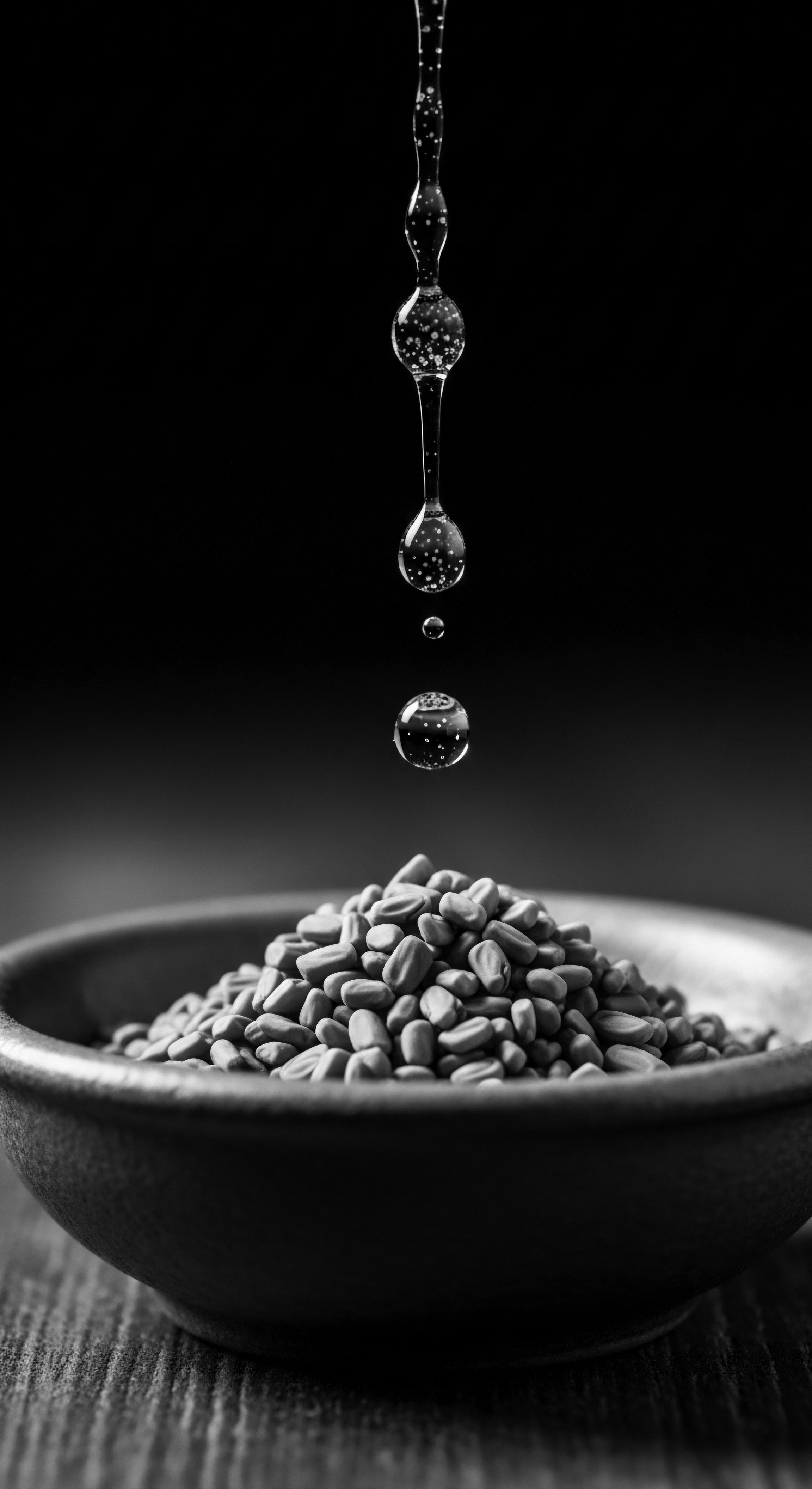
How Did Fermentation Become Part of Traditional Hair Rituals?
The integration of fermentation into hair care routines was not a spontaneous event. It stemmed from a profound, intuitive grasp of the natural world and a necessity-driven inventiveness. Imagine communities observing how certain plant materials, when left to sit with water, underwent a transformative change. A new scent, a new texture, a subtle shift in color ❉ these indicators would have signaled a potency, a new kind of vitality.
The slight acidity created by fermentation, for instance, would have been experienced as a smoothing, detangling property on textured hair, which naturally benefits from a slightly acidic rinse to help seal the cuticle. This effect, though unexplained by modern chemistry at the time, would have been recognized as beneficial, and the method carefully replicated.
These practices were often communal. Hair braiding, for example, was and continues to be a social activity, strengthening bonds between mothers, daughters, and friends. In these settings, the knowledge of preparing and applying fermented remedies would be shared, iterated upon, and perfected.
The act of washing, conditioning, or adorning hair became a moment of shared heritage, a tangible link to those who came before. In many African cultures, hair care was a collective activity, fostering social connections and allowing for the exchange of cultural knowledge.

Beyond Physicality: Hair’s Spiritual and Social Dimensions
Beyond the physical benefits, the ritual of hair care held deep spiritual and social meaning across many African traditions. Hair was often seen as a sacred part of the body, a conduit for spiritual energy and a direct link to the divine. The crown of the head was considered a point of entry for spiritual energy, making the care of hair a practice of energetic sovereignty.
Neglecting or damaging hair could symbolically sever a person from their roots, both literally and spiritually. Thus, the application of nourishing, often fermented, preparations was not just for growth or shine, it was a ceremonial act, honoring the self and ancestral lineage.
During the transatlantic slave trade, the systematic stripping of identity included the forceful shaving of hair. This act, ostensibly for “sanitary reasons,” served a deeper, dehumanizing purpose: to erase any connection to African roots and to dismantle the intricate social language conveyed through hairstyles. Yet, resilience prevailed. Enslaved Africans held fast to their heritage, adapting traditional hair practices in secret.
Braiding, for instance, became a covert means of communication, even rumored to contain maps to freedom in their intricate patterns. The rice seeds some women braided into their hair were not only for future sustenance but a testament to profound defiance.
The resilience of these hair traditions through adversity stands as a powerful testament to their cultural depth. The simple act of caring for hair, of engaging with its texture and its history, became an act of defiance, a quiet reclaiming of self in the face of immense pressure. Fermented solutions, being relatively easy to produce from common ingredients and offering tangible benefits for detangling, strengthening, and conditioning, would have been invaluable in environments where resources were scarce yet the desire to maintain cultural ties remained strong.

Relay
From the whispers of ancient rituals, the thread of fermented hair practices relays itself into our present understanding. This continuum allows us to connect the ancestral intuition with the precise language of modern science, unveiling why these age-old customs held such potency for textured hair heritage. The conversation deepens here, as we consider not only what was done, but how, and why, with a keen eye on the nuanced interplay of historical context and biological mechanisms.
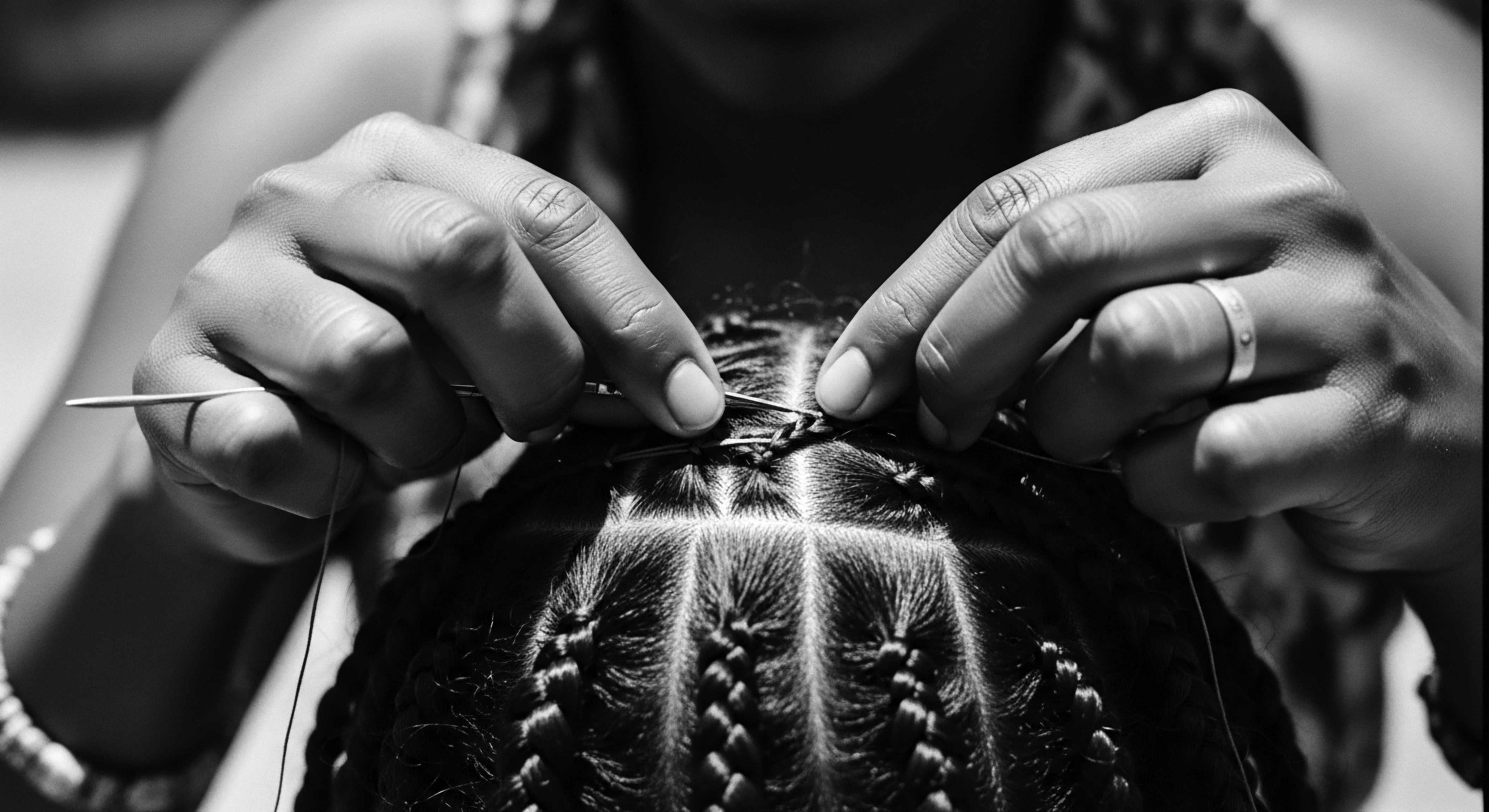
What Is the Scientific Basis for Fermented Hair Practices Efficacy?
Modern scientific inquiry offers compelling explanations for the efficacy long observed in traditional fermented hair practices. The process of fermentation, driven by various microorganisms, essentially acts as a sophisticated bioconversion engine. It breaks down larger molecules into smaller, more easily absorbed components, making nutrients more bioavailable for the hair shaft and scalp. For example, the starches in rice water, when fermented, are transformed into lighter, more manageable sugars, reducing potential buildup on textured hair while enhancing softness.
A significant benefit lies in the increased production of bioactive compounds. Fermentation boosts the levels of certain B vitamins, including inositol (Vitamin B8) and panthenol (Vitamin B5). Inositol is particularly noted for its ability to reinforce the hair cuticle and protect against future damage, while panthenol promotes moisture retention and soothes scalp irritation.
Furthermore, the process yields organic acids like lactic and acetic acid, which can help adjust the pH of the hair rinse to a slightly acidic level (around 5.5-6.0). This acidic environment helps to close the hair’s cuticles, resulting in a smoother surface, enhanced shine, and reduced frizz, all critical benefits for maintaining the integrity and appearance of textured hair.
Fermentation transforms raw ingredients into a bioavailable powerhouse, delivering enhanced nutrients and a balanced pH for textured hair vitality.
Beyond nutrient enhancement, fermented ingredients can also influence the scalp’s microbiome. A healthy scalp environment is a cornerstone for healthy hair growth. Fermented rice water, for instance, introduces beneficial lactic acid bacteria, which can contribute to a balanced scalp microbiome. This balance can help alleviate common issues like irritation and dryness, creating an optimal foundation for strong hair.

Fermented Ingredients: A Closer Look at Their Mechanism of Action
To appreciate the depth of this ancestral wisdom, consider the specific biomolecular changes occurring during fermentation. The conversion of proteins into smaller, bioactive peptides and amino acids through microbial action equips the hair with building blocks that can signal hair follicles for ongoing regeneration. This goes beyond superficial conditioning, working at a cellular level to support hair health. Antioxidants, like ferulic acid and gamma oryzanol, become more accessible in fermented solutions, offering protection against environmental stressors, helping to preserve color and vibrancy over time.
A systematic review of studies concerning rice bran, a byproduct of rice processing often associated with fermented rice water, found promising results for hair growth. This review indicated that applying rice bran may increase the production of growth factors and signals that support cell growth during the hair’s active growth phase. It also suggested that rice bran might slow down the enzymes that cause hair to cease growing and enter a resting phase.
While this review focused on rice bran extract rather than fermented rice water specifically, it lends scientific weight to the historical observations of improved hair health and growth associated with rice-based practices. (A systematic review: Application of Rice Products for Hair Growth, JDDonline)
The deep scientific benefits of fermented products extend to various botanical ingredients. Research into fermented plant extracts reveals their potential for enhancing hair follicle cell proliferation and even inhibiting enzymes linked to hair loss. For example, some studies indicate that fermented fruits can significantly inhibit hair loss, increase hair density and thickness, and improve hair follicle structure.
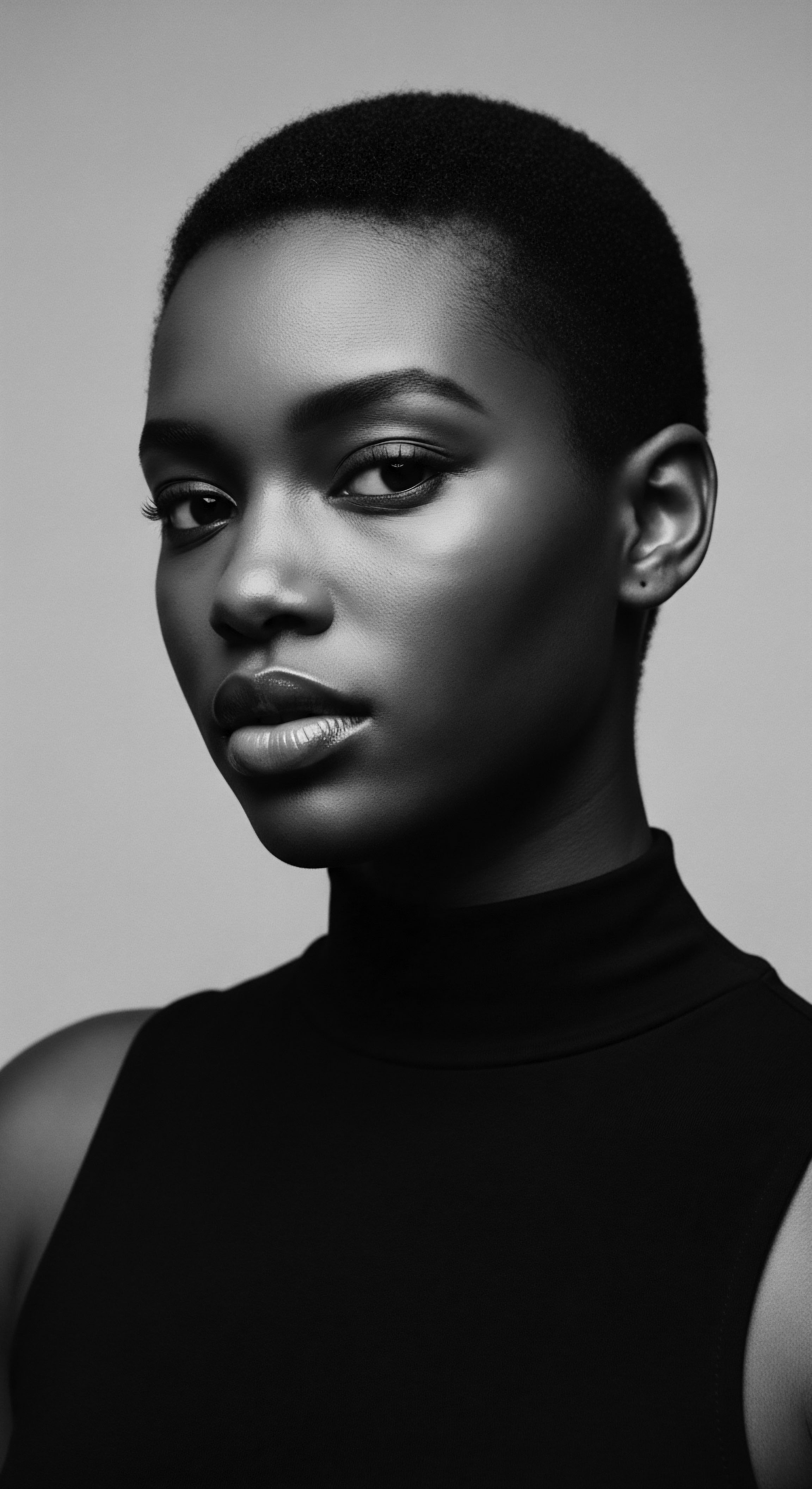
Echoes in Modern Formulations: How Fermentation Continues to Serve Textured Hair
The principles underpinning traditional fermented hair practices find their relay in contemporary hair care. Many modern formulations now incorporate fermented ingredients, drawing directly from this well of ancient knowledge. These products often aim to deliver the enhanced bioavailability and potent nutrient profile that fermentation provides, marrying ancestral wisdom with advanced cosmetic science. This represents a respectful continuity, acknowledging the efficacy of practices that have served Black and mixed-race communities for generations.
Consider the contemporary natural hair movement, a powerful reclamation of textured hair as a symbol of identity, pride, and resistance. This movement, with its roots in the “Black is Beautiful” ethos of the 1960s Civil Rights Era, champions traditional care methods and natural ingredients. It has brought renewed attention to practices that prioritize hair health, moisture, and definition, rather than alteration. Fermented ingredients, by supporting the intrinsic properties of textured hair and scalp health, align seamlessly with this philosophy.
The global impact of these traditions is undeniable. The historical use of fermented preparations, often rooted in resourcefulness and a deep connection to nature, provides a valuable framework for understanding holistic hair care today. The legacy of these practices is not static; it is a dynamic, living heritage that continues to shape how textured hair is understood, celebrated, and nourished worldwide.
- Red Yao Women’s Practice ❉ The Yao women of Huangluo Village in China have used fermented rice water for centuries, resulting in remarkably long, strong, and dark hair well into old age.
- Scalp Microbiome Support ❉ Fermented ingredients contribute to a balanced scalp microbiome, which helps reduce irritation and supports healthy hair growth.
- Enhanced Bioavailability ❉ The fermentation process breaks down complex molecules, making nutrients more absorbable by hair and scalp.
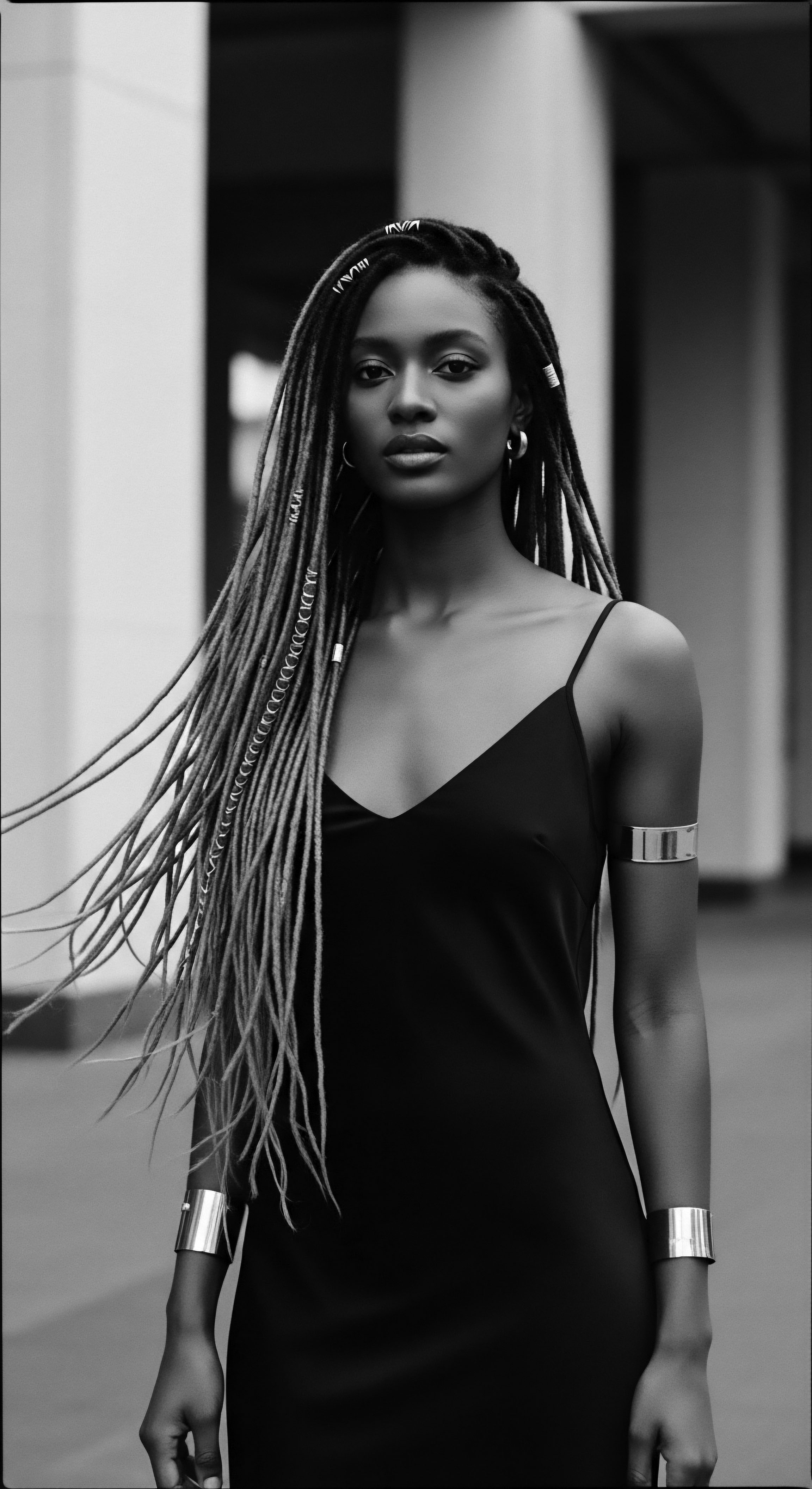
Reflection
As we trace the lineage of traditional fermented hair practices, a profound truth emerges. This is not a mere collection of antiquated beauty secrets. It is a vibrant, living testament to the enduring ingenuity and profound wisdom embedded within Black and mixed-race hair heritage.
The journey from elemental biology to communal ritual, and finally to scientific validation, reveals a continuity, a circular dance where past informs present and future. The soul of a strand, indeed, holds within its very structure the whispers of ancestors who meticulously tended to their coils, kinks, and waves, not just for adornment, but for identity, for spiritual connection, for survival.
In every application of a fermented rinse, in every careful massage of a scalp nourished by ancient preparations, there resides a deep cultural memory. It is a memory of resilience, of beauty cultivated against the backdrop of adversity, and of self-acceptance nurtured through collective practice. These practices remind us that hair, particularly textured hair, has always been a powerful canvas for self-expression, a banner of heritage carried proudly across generations and geographies.
The deep knowledge of how to sustain hair health, even with limited means, stands as a beacon for contemporary holistic wellness, urging us to look beyond superficial solutions and connect with the intrinsic needs of our strands. The story of fermented hair practices is a continuing affirmation of the profound, luminous legacy held within textured hair, a heritage always worth celebrating, learning from, and honoring.

References
- Afriklens. African Hairstyles: Cultural Significance and Legacy. Afriklens. 2024.
- Clinikally. Embracing the Wonders of Fermented Oils in Hair Care. Clinikally. 2024.
- Clinikally. Exploring the Wonders of Fermented Rice Water for Hair Vitality. Clinikally. 2024.
- Colleen. The History of Textured Hair. Colleen. 2020.
- Dabiri, Emma. Twisted: The Tangled History of Black Hair Culture. New Beacon Books. 2020.
- JDDonline. A Systematic Review: Application of Rice Products for Hair Growth. JDDonline.
- KERA BOND. Role of Fermented Ingredients in Scalp Microbiota Balance. KERA BOND. 2024.
- MDPI. Biological Activity of Fermented Plant Extracts for Potential Dermal Applications. MDPI. 2023.
- MDPI. Biomolecules of Fermented Tropical Fruits and Fermenting Microbes as Regulators of Human Hair Loss, Hair Quality, and Scalp Microbiota. MDPI. 2023.
- Medical News Today. Rice Water for Hair: Benefits and how to use it. Medical News Today. 2024.
- Noma Sana. The History of Straightening Afro Hair: Culture, Trends & Identity. Noma Sana. 2024.
- Refinery29. The Evolution Of The Natural Hair Movement. Refinery29. 2021.
- Salford Students’ Union. The Remarkable History Behind Black Hairstyles. Salford Students’ Union. 2024.
- She Reads. 10 Books On the Evolution of Black Culture Through Hair. She Reads. 2022.
- Substack. Ancestral Hair Rituals to Nourish Your Hair and Soul. Substack. 2025.
- Suntied. Spiritual Renewal Through Haircuts: Exploring the Connection Between Letting Go and Hair Care. Suntied. 2025.
- Teami Blends. Rice Water for Hair: Ancient Beauty Secret or Hype?. Teami Blends. 2025.
- The Kurl Kitchen. The Cultural Significance Of Natural Hair In Different Communities. The Kurl Kitchen. 2024.
- The Queen’s Journal. History, identity, and community: The significance of Black hair. The Queen’s Journal. 2025.
- Umthi. The Cultural Significance and Representation of Afro-Textured Hair. Umthi. 2023.
- VIORI Shampoo Bars. The Ancient Rice Water Secret for Hair That Defies Aging. VIORI Shampoo Bars. 2025.
- Wikipedia. Natural hair movement. Wikipedia.

